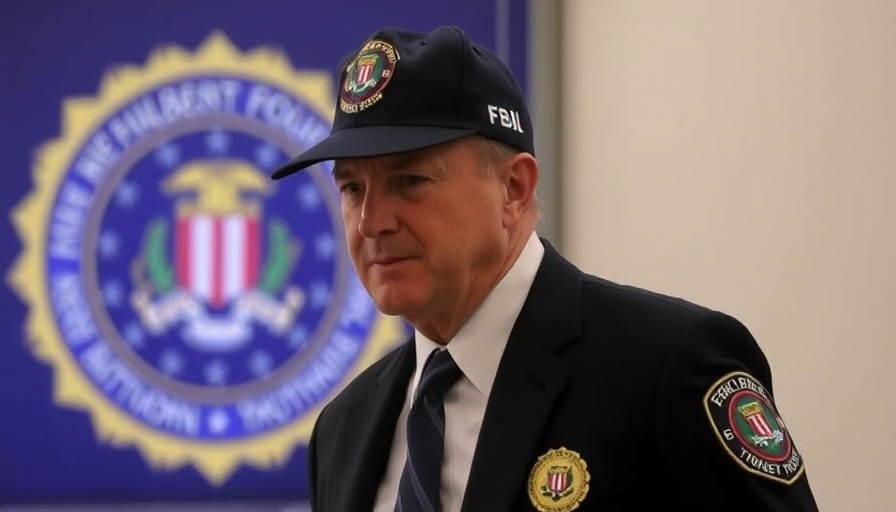
FBI Agent Arrested Amid Controversy: What's the Story?
Johnathan Buma, an agent of the FBI with a significant tenure of 15 years, has landed in hot water after being charged with sharing confidential documents while criticizing the bureau's alleged political bias during Donald Trump’s presidency. This incident raises serious questions about the ethics and accountability of law enforcement officials, especially those involved in politically charged environments.
The Allegations: Understanding the Charges
Buma is accused of printing and distributing approximately 130 confidential files from internal FBI networks, allegedly to assist in writing a memoir about his career. The legality of sharing such documents has drawn sharp scrutiny, as it challenges the integrity demanded from law enforcement and national security agencies. This action not only jeopardizes investigations but also potentially undermines public trust in the FBI.
Political Ramifications of the Arrest
The arrest comes at a turbulent time when former President Trump has vocally condemned the Justice Department, claiming bias against him and his allies. As Buma's case unfolds, it becomes a flashpoint reflecting broader tensions between political narratives and institutional integrity. Supporters of Trump argue that the case exemplifies an ongoing effort to undermine individuals who dare speak against the establishment.
Implications for the FBI and National Security
The FBI’s director, Kash Patel, has reassured staff amid rising political tensions, asserting that he will protect them from possible retaliation for their actions related to the investigations into Trump. This situation illustrates the intricate balance the FBI must maintain between its operational integrity and external political pressures, challenging its ability to operate independently.
Legal Considerations: What Lies Ahead for Buma?
As Buma awaits trial, the legal ramifications could set precedents for how law enforcement personnel are held accountable for disclosing sensitive information. The expectation is for Buma's defense strategy to revolve around the complexities of whistleblower protections versus the strict prohibition against leaking classified information. This case may open the doors for discussions about reforming policies governing the actions of federal agents.
Public Reaction and Media Coverage
Media coverage of Buma's arrest has highlighted polarized views. Critics argue that the charges reflect the necessary keeping of checks on government transparency, while supporters assert that this is yet another example of a deep state against Trump supporters. The portrayal of Buma in various media outlets also demonstrates how narratives can shape public perception, influencing the search for truth in politically sensitive matters.
Moving Forward: What Can Citizens Do?
In an era where political rhetoric often dominates discourse, it's essential for citizens to stay informed and engage critically with news related to law enforcement and politics. Discussions with policymakers and community members can foster a deeper understanding of the intersection between politics and public service. Engaging with these topics brings everyone closer to understanding the delicate balance between trust, security, and political freedom.
In a highly charged political environment, the actions of individuals like Johnathan Buma underscore the complexities faced by public servants. As this situation evolves, following the news, supporting reforms that promote transparency, and advocating for ethical standards in governance will be crucial to safeguarding democratic principles.
 Add Row
Add Row  Add
Add 



Write A Comment